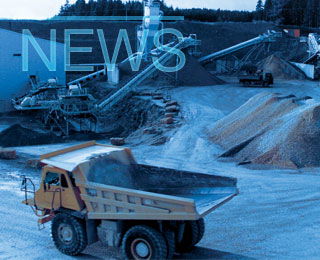Shares in Rinker Group Ltd jumped higher in early trade after the group upgraded its full year guidance on the back of solid demand and price rises for its building products. The group’s United States business Rinker Materials - which contributes about 80 per cent of group earnings and revenue - has achieved the biggest success. Rinker today said that the combination of price rises and continued strong demand for houses in the US would boost Rinker Materials’ earnings before interest and tax (EBIT) by 35 per cent for the full year ending March 31, in US dollar terms. That’s up from previous guidance of a 30 per cent rise.
Rinker made the forecasts today as it reported its results to the end of the third quarter, beating analysts’ expectations. For the nine months to December 31, 2004, net profit was up 26 per cent to $A418m. "It was obviously a strong result, driven by concrete and cement in Florida," UBS analyst Mark Ebbinghaus said. For the first nine months, EBIT for Rinker Materials was up 45 per cent to $US135.3m, with particular strength in Florida, which alone accounts for more than 40 per cent of total group earnings.
"In Florida you have the advantage that there’s aggregates shortages. That just gives you pricing power," another analyst, who did not want to be named, said. "That flows into your concrete business. "If all the competitors have sold out, there’s no point in dropping your prices. You keep pushing the price up."
Rinker chief executive David Clarke said construction activity was now expected to slow across most of the group’s major markets. "But we continue to expect slight incremental growth in volumes in both the US and Australia," he said in a statement. "Further price increases are also expected during the quarter in the US and from April in Australia, aimed at offsetting more anticipated cost increases." Mr Clarke also said the acquisitions continued to be scarce, but Rinker remained on the look-out and was also considering some form of capital management. (Abstracted from Australian Associated Press report).
